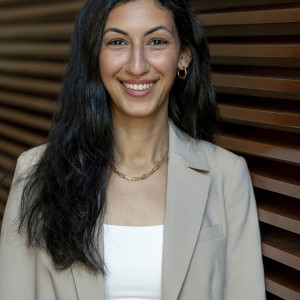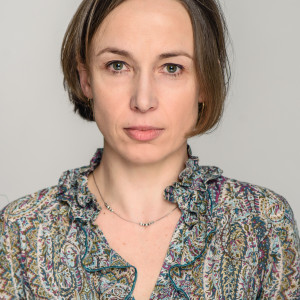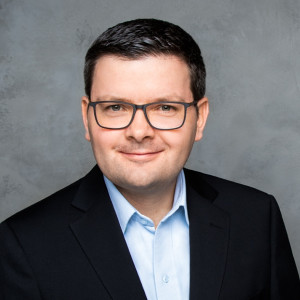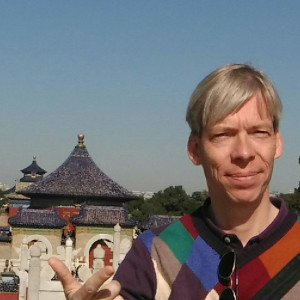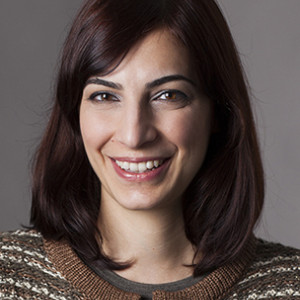The IMISCOE Standing Committee “Methodological Approaches and Tools in Migration Research” (Meth@Mig) in collaboration with the Sociology and Anthropology Program at the Doha Institute for Graduate Studies invites researchers of any methodological orientation to participate in the
5th Annual Meth@Mig Workshop
Methodological Approaches in Cross-Cultural and Cross-National (Migration) Research
to be held on March 30-31, 2026
at the Doha Institute for Graduate Studies (DI)
Doha, Qatar
Submission deadline extended to November 18, 2025!
Keynote speakers:
Anju Mary Paul (NYU Abu Dhabi)
and
Timothy P. Johnson (University of Illinois at Chicago)
In social research, working across national, linguistic, and cultural contexts is increasingly the norm rather than the exception. Comparative and transnational designs, multi-sited ethnographies, cross-national surveys, and collaborative projects across borders present both important opportunities and complex methodological challenges. These include questions of comparability, bias, contextual sensitivity, translation, ethics, and researcher positionality — all of which significantly shape the validity, relevance, and impact of (migration) research outputs.
Therefore, this workshop will focus on the methodological implications of cross-cultural and cross-national approaches in social research, including but not limited to migration research. We invite contributions that reflect on how such methods are developed, designed, and applied; as well as, how results are interpreted and how methodological decisions shape the knowledge we produce. Possible topics that might be addressed include (without being limited to) the following:
- Conceptual and design challenges: e.g., how do researchers define and operationalize concepts like identity, integration, or mobility across different cultural and national settings?
- Data collection and comparability: e.g., what are the practical and ethical considerations when using surveys, interviews, or ethnographic observation across borders and cultural contexts?
- Cultural differences between researchers/interviewers and participants: e.g., how might cultural differences between researchers (in qualitative settings) or interviewers (in interviewer-administered surveys) and research participants impact data collection and results?
- Translation: e.g., which challenges are associated with the translation of interview guidelines, survey questionnaires and interview transcripts?
- Cross-cultural measurement equivalence: e.g., how can researchers be assured that seemingly identical instruments and questions measure the same phenomena across cultural and linguistic borders?
- Computational and visual methods across cultural and national borders: e.g., what is the potential of cross-cultural computational social science and visual methods in a cross-cultural research setting? How transferable are interpretations across cultures?
- Multi-sited fieldwork and its logistical, analytical, and ethical demands: e.g., what ethical tensions emerge when navigating diverse power dynamics, positionalities, and institutional requirements across research sites?
- Culturally diverse research teams: e.g., how do differences in cultural background within research teams impact research designs, field work and data interpretation?
- Collaborative, participatory, or decolonial research across national contexts: e.g., how can research designs engage more equitably with participants, communities, and researchers from different cultural and national backgrounds? What are the promises and pitfalls of collaborative and participatory approaches in cross-cultural or transnational projects? How can decolonial methodologies challenge extractive research practices, redistribute power in knowledge production, and acknowledge asymmetries between Global North and Global South institutions and actors?
We welcome contributions using any methodological approach —qualitative, quantitative, computational, or mixed— that address opportunities, challenges, tools or frameworks associated with social research across cultural and national boundaries.
A clear methodological focus is required for all contributions.
The workshop will feature brief oral presentations of accepted contributions, but its main emphasis will be on in-depth, open exchange among participants. This format will, therefore, leave ample room for discussion amongst the workshop participants. To spark discussion, the workshop will feature keynote lectures by Anju Mary Paul (NYU Abu Dhabi) and Timothy P. Johnson (University of Illinois at Chicago) —experts in cross-cultural and cross-national research— who will share insights on innovative methodological approaches as well as emerging challenges and lessons learned in the field.
The in-person workshop is organized by the IMISCOE Standing Committee on Methodological Approaches and Tools in Migration Research (Meth@Mig) in collaboration with the Doha Institute for Graduate Studies, and will be held on March 30-31, 2026, in Doha, Qatar. There are no participation fees; however, attendees must cover their own travel costs to and from Qatar. Accommodation, transportation from/to the Doha Institute, and three meals/day will be covered for one presenting author per contribution for the duration of the stay (3 nights).
Please submit an abstract of your planned contribution (approx. 300 words) and a short biography (max 100 words) to
Accepted proposals will be grouped into thematically cohesive sessions, consisting of short and concise presentations aiming to stimulate and advance debate. Decisions on the acceptance of contributions will be communicated at the beginning of December 2025. For planning and logistical purposes, accepted authors will be asked to confirm their participation within two weeks of notification.
As a follow-up to the workshop, the organizers will prepare a proceedings volume in December 2026, to which participants will be asked to contribute a 1,500–2,000-word research note by July 1st, 2026. Furthermore, the organizers intend to submit a subsequent special issue in a peer-reviewed journal. Selected contributors to the conference proceedings will then be invited to develop their work into a full article for the special issue. In line with the Doha Institute’s mission and our commitment to reaching a wider audience, the proceedings will also be translated and published in Arabic.
Download the pdf version of the call here.
To learn more about the local host institution, please visit the website of the Doha Institute`s School of Social Sciences and Humanities.
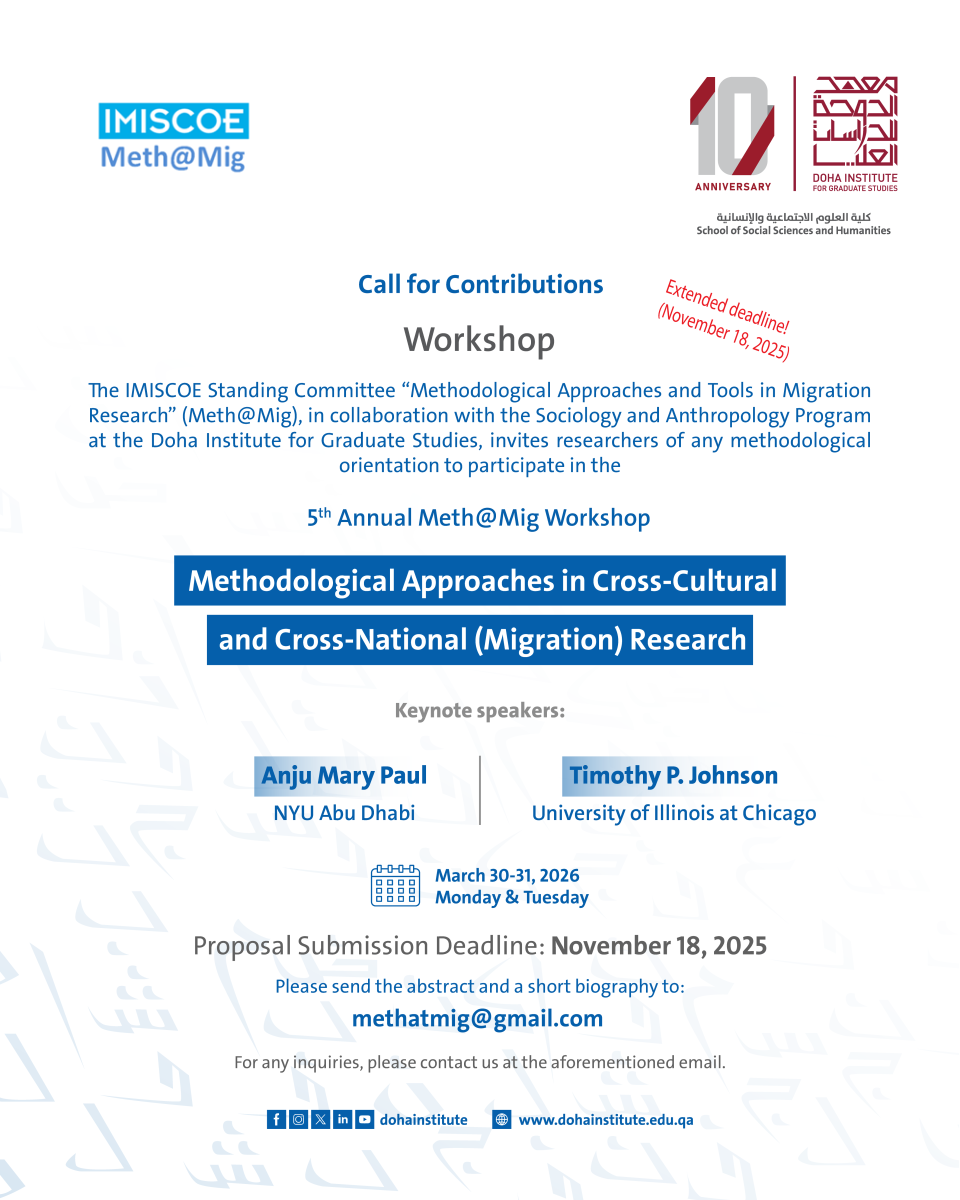
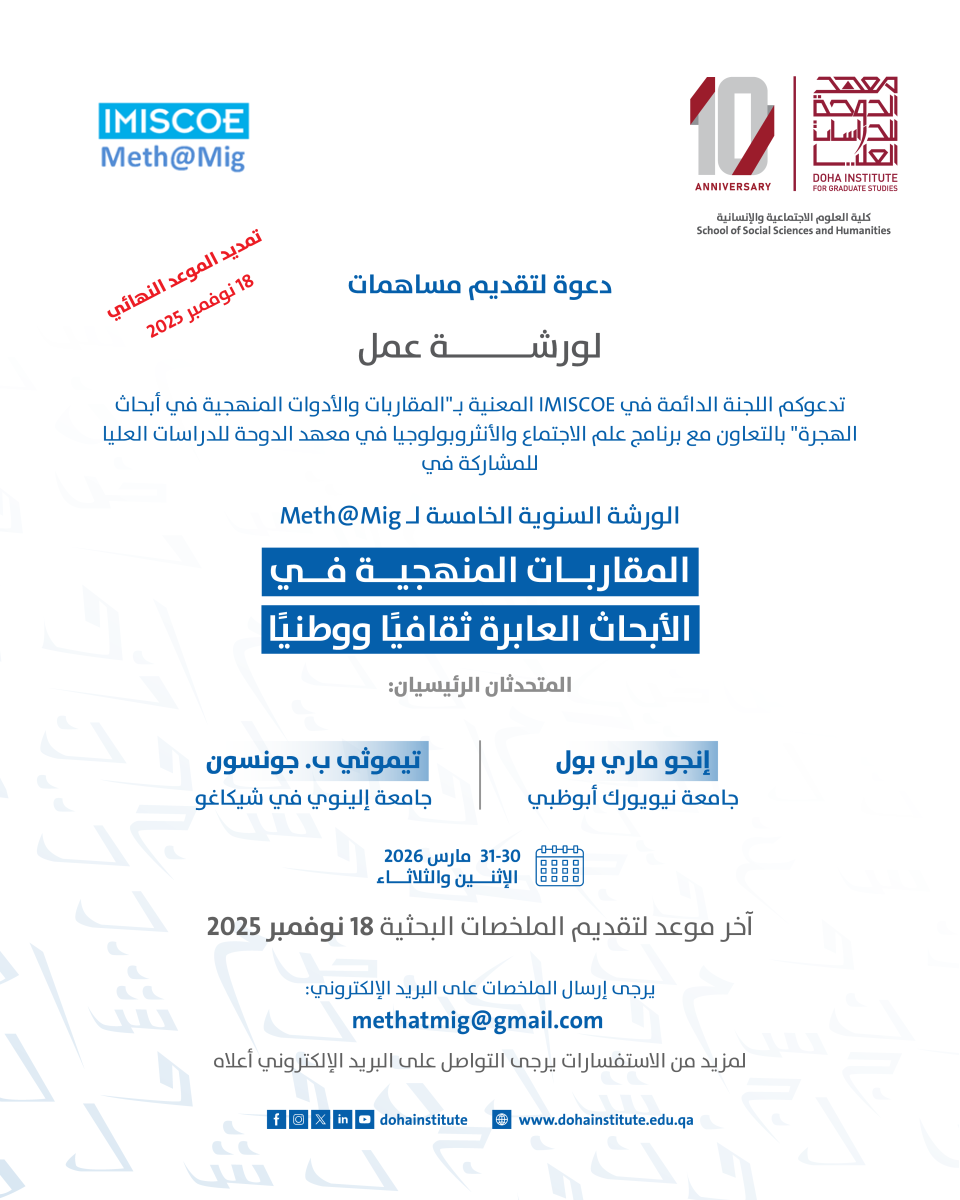
Organizing Committee:

